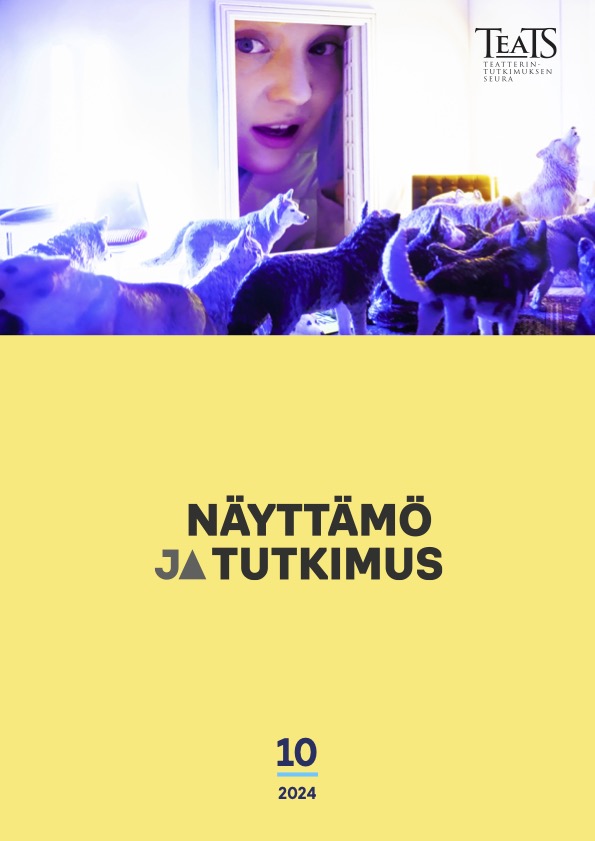Medeian tytär mediayhteiskunnassa
E. L. Karhun Eriopis ja kertomisen etiikka
Keywords:
Tragedia, Mediayhteiskunta, kertomisen etiikka, draaman jälkeinen teatteriAbstract
The central feature of a tragedy is its ending, the silence that follows the catastrophe and the audience that leaves the scene. However, the playwright E. L. Karhu brings to the stage the child who is forced to live in the aftermath of the tragedy. In Karhuʼs play Eriopis. Medea's Daughter Survivor Tells All (2019), Medea has killed her and Jasonʼs twin sons but not their daughter Eriopis. Set not in mythical ancient Greece but in modern media society, the tragedy is followed not by silence but by a media spectacle. In my article, I explore how Karhuʼs play illustrates the ways in which media society operates and how Eriopis as a character and the play as a whole struggles against the media and its narratives. While the media uses a number of methods that are characteristic of drama to create stories that are attractive to an audience, Eriopis rejects them and looks for alternative ways to confront tragedy and the person who experiences it. Drawing on characteristics of post-dramatic theatre described by Hans-Thies Lehmann, the work challenges familiar narrative structures and, at the same time, the audience waiting for its inspirational story.

Downloads
Published
How to Cite
Issue
Section
License
Copyright (c) 2024 Näyttämö ja tutkimus

This work is licensed under a Creative Commons Attribution-NonCommercial-NoDerivatives 4.0 International License.
Accepted 2024-10-06
Published 2024-11-15




